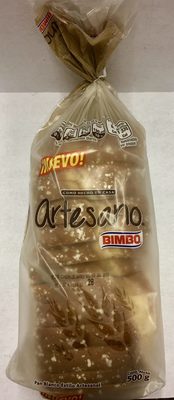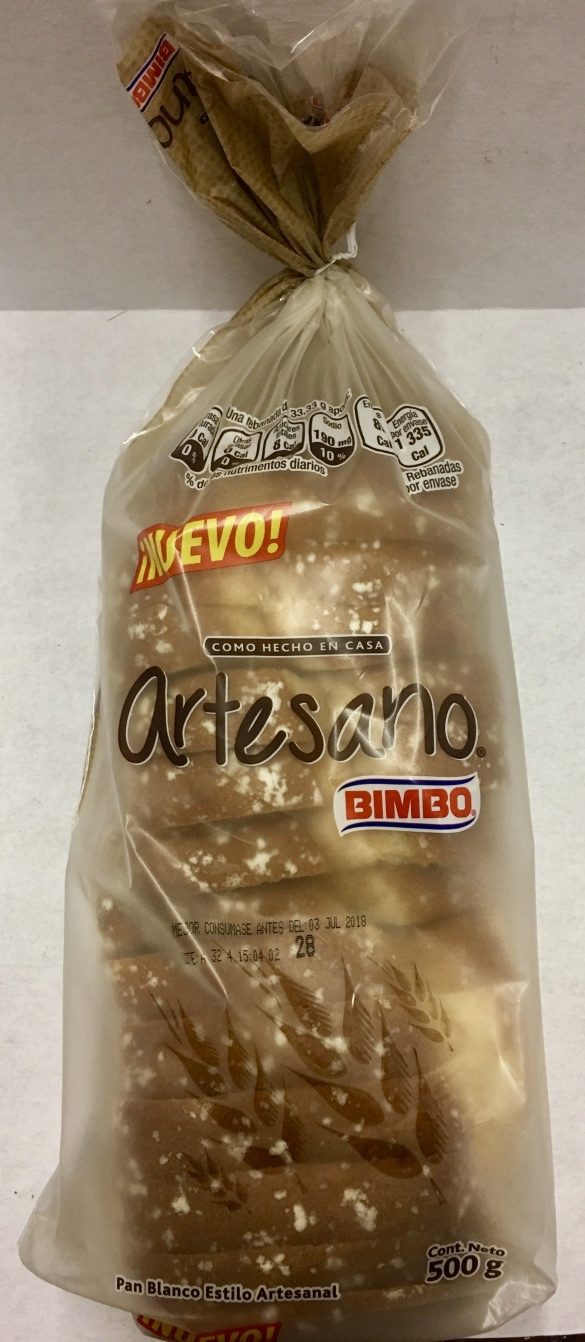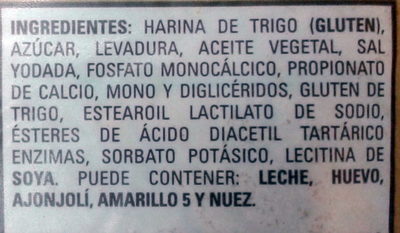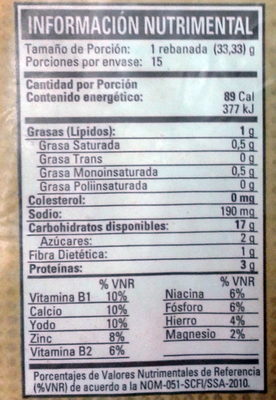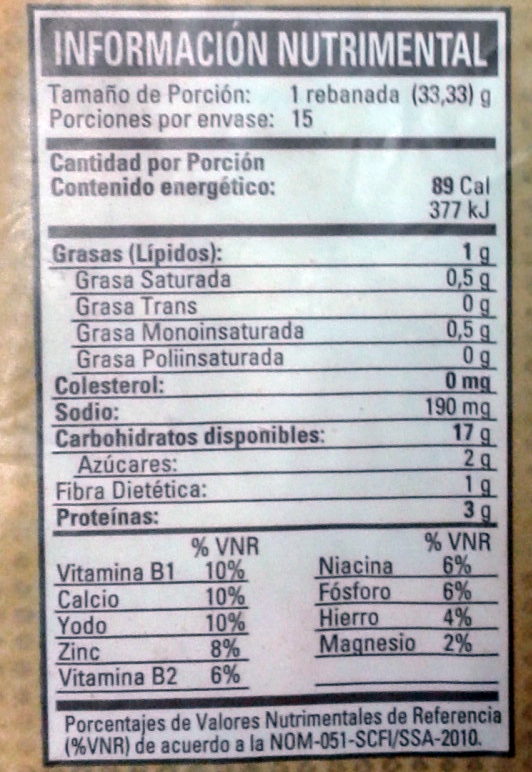Pan artesano - Bimbo - 500 g
This product page is not complete. You can help to complete it by editing it and adding more data from the photos we have, or by taking more photos using the app for Android or iPhone/iPad. Thank you!
×
Barcode: 7501030464389 (EAN / EAN-13)
Common name: Pan blanco estilo artesano
Quantity: 500 g
Packaging: Plastic
Brands: Bimbo, Bimbo S.A. de C.V.
Categories: Plant-based foods and beverages, Plant-based foods, Cereals and potatoes, Breads, White breads
Labels, certifications, awards: es:Sembrando Juntos
Origin of ingredients: es:Ciudad de México
Manufacturing or processing places: Ciudad de México
Stores: Walmart, Bodega Aurrerá, Soriana, Mercado Soriana, La Comercial, Chedraui, Superama
Countries where sold: Mexico
Matching with your preferences
Environment
Packaging
Transportation
Report a problem
Data sources
Product added on by nobeeakon
Last edit of product page on by packbot.
Product page also edited by openfoodfactsmx, openfoodfactsmx3.
